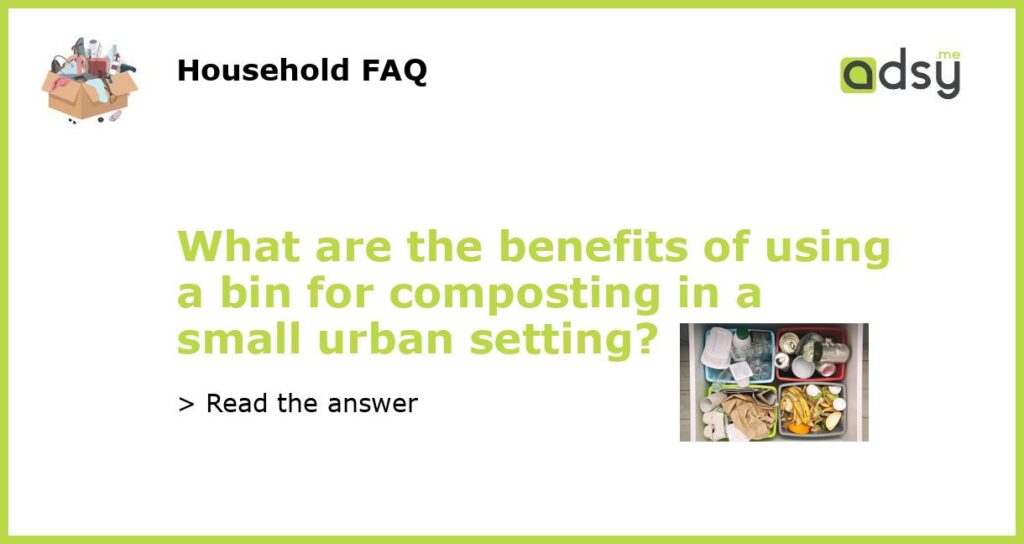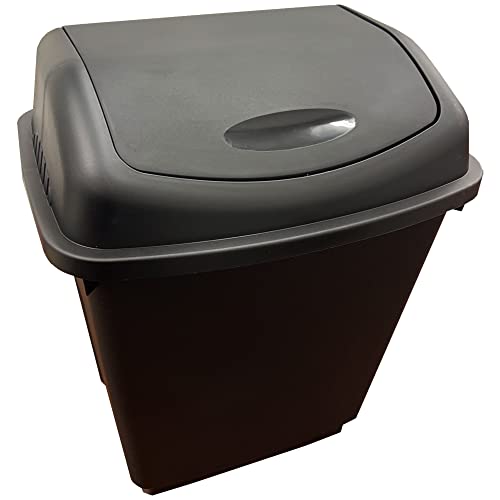Benefits of using a bin for composting in a small urban setting
Composting is an effective way to reduce waste and create nutrient-rich soil. While composting may seem challenging in a small urban setting, using a bin can make the process more manageable and efficient.
Reduces waste sent to landfills
One of the major benefits of composting in a small urban setting is that it reduces the amount of waste sent to landfills. Organic waste makes up a significant portion of household waste, and when it decomposes in landfills, it produces harmful greenhouse gases such as methane. By composting organic waste instead, it can be transformed into nutrient-rich soil that can be used for gardening or landscaping purposes.
Produces high-quality compost
Using a bin for composting in a small urban setting allows for better control over the composting process, resulting in higher-quality compost. The bin provides a contained environment that helps maintain the ideal balance of moisture, oxygen, and temperature for decomposition. This leads to faster and more efficient composting, resulting in nutrient-rich compost that can improve soil structure and fertility.
Saves money on fertilizers
Composting in a small urban setting can save you money on fertilizers. Instead of purchasing expensive chemical fertilizers, you can use the compost produced from your bin to provide nutrients to your plants. Compost is a natural and organic alternative to synthetic fertilizers, and it contains a variety of essential nutrients that can promote plant growth and health.
Improves soil health
Using a compost bin in a small urban setting can greatly improve the health of your soil. Compost acts as a natural soil conditioner, improving soil structure and increasing its ability to retain moisture. It also enhances soil fertility by providing a wide range of essential nutrients and micronutrients that are beneficial for plant growth. By adding compost to your garden or landscaping, you can create a healthier and more productive growing environment.
Reduces the need for chemical pesticides
Composting in a small urban setting can also help reduce the need for chemical pesticides. Healthy soil, enriched with compost, promotes strong plant growth and vigor, making plants less susceptible to pests and diseases. Additionally, compost contains beneficial microorganisms that can help suppress harmful pathogens and pests. By maintaining a healthy and balanced ecosystem in your garden or landscaping, you can minimize the use of chemical pesticides and create a more sustainable environment.






